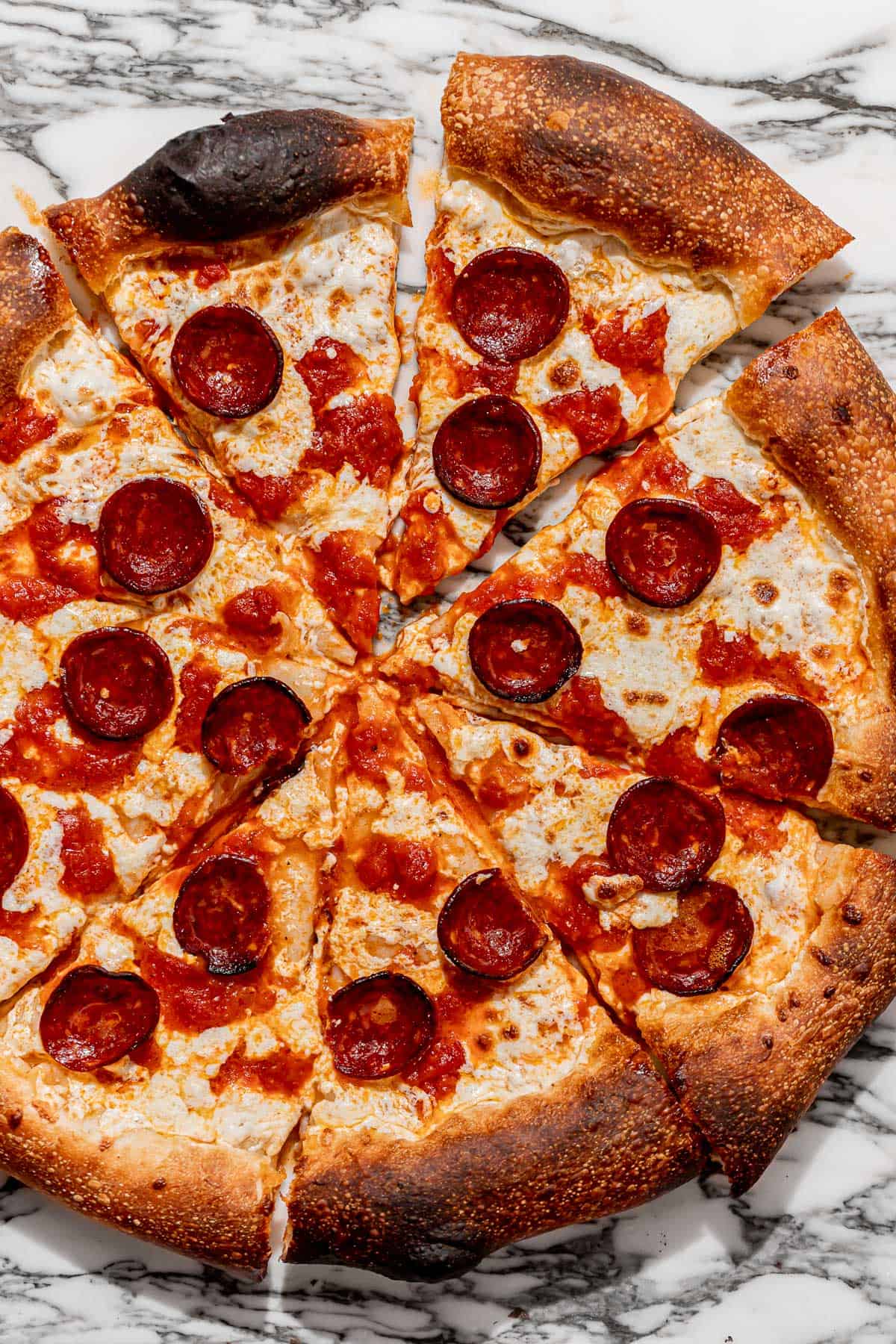Every dish has rules. That’s what makes it a dish. Nouns, as a concept, require limited flexibility - but the flexibility is as requisite as the limitation. Otherwise we could not mean things when we say words.
You can’t call poutine pizza because no one calls it pizza, they call it poutine. If there’s a dish that is commonly understood to mean pizza, you can call it pizza in the context that it’s understood to mean that.
Saying “___ style pizza isn’t pizza” is just weird, because you’re referring to it as pizza to say that it isn’t.
What’s the difference to you between a Reuben and a pizza? Why can I add ingredients to a pizza and it’s still pizza, but if I add something to a Reuben it stops being one? Why isn’t sandwich, which was originally a specific preparation, given the same regard?
Pizza is like sandwich, not like Reuben. It’s not a specific variety, it’s a category.
Behold, pizza.
Every dish has rules. That’s what makes it a dish. Nouns, as a concept, require limited flexibility - but the flexibility is as requisite as the limitation. Otherwise we could not mean things when we say words.
You can’t call poutine pizza because no one calls it pizza, they call it poutine. If there’s a dish that is commonly understood to mean pizza, you can call it pizza in the context that it’s understood to mean that. Saying “___ style pizza isn’t pizza” is just weird, because you’re referring to it as pizza to say that it isn’t.
What’s the difference to you between a Reuben and a pizza? Why can I add ingredients to a pizza and it’s still pizza, but if I add something to a Reuben it stops being one? Why isn’t sandwich, which was originally a specific preparation, given the same regard?
Pizza is like sandwich, not like Reuben. It’s not a specific variety, it’s a category.
Behold, a nameless food: